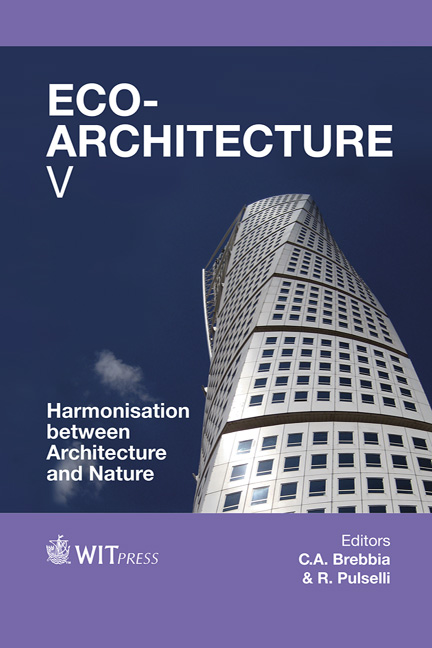An Energy-efficient Smart Home For New Cities In Egypt
Price
Free (open access)
Transaction
Volume
142
Pages
12
Page Range
115 - 126
Published
2014
Size
1,710 kb
Paper DOI
10.2495/ARC140111
Copyright
WIT Press
Author(s)
M. M. Mourad, A. H. H. Ali, S. Ookawara, A. K. Abdel-Rahman, N. M. Abdelkariem
Abstract
The rapid growth of energy use, worldwide, has raised concerns over problems of energy supply. Residential home energy consumption is now an important component of total energy. The term ‘smart home’ has emerged as the keyword for such automated dwellings, by letting the system decide on an environmentally friendly time to consume energy. The major shift in the vision of sustainable efficient homes in cities is the potential of buildings to produce energy. In this study, an efficient design of a single family home with all passive architectural systems will carried out. This will be followed by the calculation of energies as a function of yearly distribution that is required for this home. This study aims at designing an energy-efficient smart home with renewable energy utilizations during the early stages of planning of new societies in the Egyptian desert. A prototype house for single-family detached houses of about 240 m2 on two floors, each floor comprising about 120 m2, with efficient utilization of the renewable energies technologies is proposed. In order to achieve the above objective, this paper presents a review for energy efficiency in Egypt, and a detailed analysis of the efficient renewable energy technologies used in smart homes. The present study showed that the smart house for single-family detached houses in new societies in Egypt could be efficient and save about 20% of the home energy bill.
Keywords
Egyptian new cities, hot arid areas, renewable energy, efficient homes, renewable energy technologies





